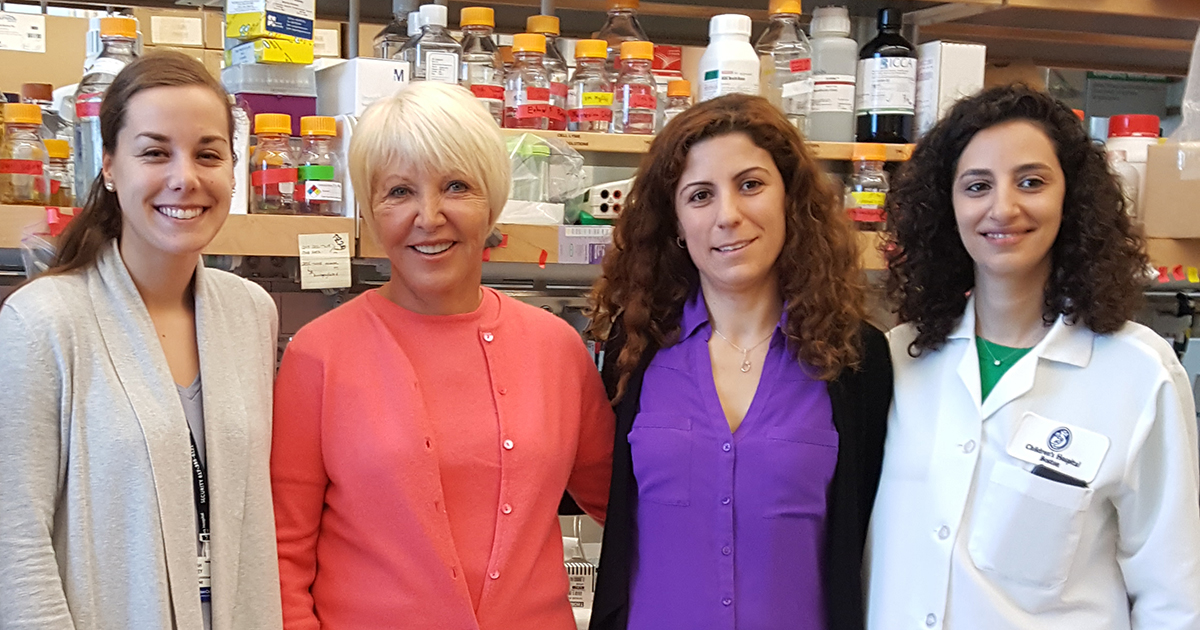The study, published in Nature Communications, found that targeting the enzyme arginase 2 (ARG2), which tumors use to dispose of nitrogen, can slow the growth of pancreatic tumors.
As Assistant Professor at Harvard Medical School and Associate at Boston Children’s Hospital, Kalaany has spent the last 6 years studying the metabolic dependencies of tumor growth. Her Seed Grant focused on the urea cycle in obesity-associated pancreatic cancer to greater understand how nitrogen, and enzymes used to break it down, affect tumor growth rates.
We know that there is a direct link between obesity and pancreatic cancer, but Kalaany’s research may provide a metabolic treatment to slow tumor growth for all patients.
“We found that highly malignant pancreatic tumors are very dependent on the nitrogen metabolism pathway,” says Kalaany. Nitrogen is a natural byproduct of cells processing proteins but obesity-associated tumors produced high levels of ARG2, the enzyme that assists in disposing of excess nitrogen as part of the urea cycle.
“Pancreatic tumors are known to take up and break down large amounts of protein to fuel their growth,” explains Kalaany. “It seems obesity or rapid growth exaggerate a tumor’s need to get rid of nitrogen. They need ARG2 to get rid of the extra nitrogen and prevent ammonia from accumulating.”
“Silencing ARG2 in human tumors grown in obese mice strongly suppresses tumor growth – representing a novel strategy to stop or slow disease progression,” Kalaany says.
Research that leads to a deeper understanding of tumor biology and novel treatment options highlight the importance of our Seed Grant Program in the finding a cure for pancreatic cancer. Kalaany adds, “I am deeply grateful for the Hirshberg Foundation grant, which helped us bring [this study] successfully to completion, at a time we needed it most. In addition, I am grateful that the Hirshberg Foundation provided funds for a continuation of this project (currently in progress).”
Kalaany’s project was lengthy and expensive. And there is still work to be done in order to translate these findings into new treatment options. We applaud Dr. Nada Kalaany and her team at Boston Children’s Hospital and the Broad Institute of MIT and Harvard for their commitment to Never Give Up in their quest for expanded treatment options and ultimately, a cure.
** Boston Children’s Hospital full press release
(https://www.eurekalert.org/pub_releases/2017-08/bch-amt081517.php)
Original publication in Nature Communications
(https://www.nature.com/articles/s41467-017-00331-y)


